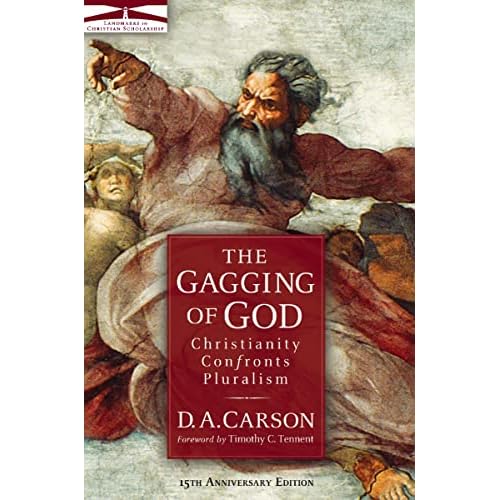Tolerant of what?
 In our staff meetings we have been going over "The Gaging of God" (D.A. Carson)
In our staff meetings we have been going over "The Gaging of God" (D.A. Carson)The book sets out to offer "an in-depth look at the big picture, shows how the many ramifications of pluralism are all parts of a whole, and then provides a systematic Christian response."
There are lots of usful insites in the first chapter alown and most importantly of all, the are linked back and applyed to the contempory christain minister.
One insight I espeshaly found usful was:
under the impact of radical hermeneutics and of deconstruction, the nature of tolerance has changed. In a relatively free and open society, the best forms of tolerance are those that are open to and tolerant of people, even when there are strong disagreements with their ideas. This robust toleration for people, if not always for their ideas, engenders a measure of civility in public discourse while still fostering spirited debate over the relative merits of this or that idea. Today, however, tolerance in many Western societies increasingly focuses on ideas, not on people.
The result of adopting this new brand of tolerance is less discussion of the merits of competing ideas—and less civility. There is less discussion because toleration of diverse ideas demands that we avoid criticizing the opinions of others; in addition, there is almost no discussion where the ideas at issue are of the religious sort that claim to be valid for everyone everywhere: that sort of notion is right outside the modern “plausibility structure” (to use Peter Berger’s term), and has to be trashed. There is less civility because there is no inherent demand, in this new practice of tolerance, to be tolerant of peoples and it is especially difficult to be tolerant of those people whose views are so far outside the accepted “plausibility structures” that they think your brand of tolerance is muddleheaded.
Carson, The Gagging of God, (Apollos, 1996), p32





